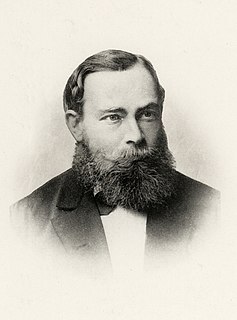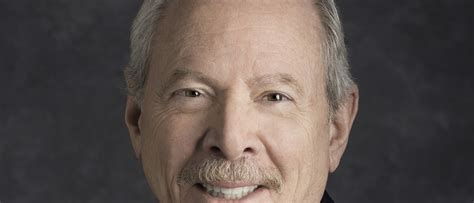A Quote by Thomas Huxley
Science ... warns me to be careful how I adopt a view which jumps with my preconceptions, and to require stronger evidence for such belief than for one to which I was previously hostile. My business is to teach my aspirations to conform themselves to fact, not to try and make facts harmonize with my aspirations.
Related Quotes
Science is much more than a body of knowledge. It is a way of thinking. This is central to its success. Science invites us to let the facts in, even when they don't conform to our preconceptions. It counsels us to carry alternative hypotheses in our heads and see which ones best match the facts. It urges on us a fine balance between no-holds-barred openness to new ideas, however heretical, and the most rigorous skeptical scrutiny of everything - new ideas and established wisdom.
The political awakening that is happening worldwide is a major challenge for America, because it means that the world is much more restless. It's stirring. It has aspirations which are not easily satisfied. And if America is to lead, it has to relate itself somehow to these new, lively, intense political aspirations, which make our age so different from even the recent past.
The impossibility of separating the nomenclature of a science from the science itself, is owing to this, that every branch of physical science must consist of three things; the series of facts which are the objects of the science, the ideas which represent these facts, and the words by which these ideas are expressed. Like three impressions of the same seal, the word ought to produce the idea, and the idea to be a picture of the fact.
The New York Times and PBS are gatekeepers of a sort. And they perform that role of gatekeeping with a set of rules and aspirations about where they want to lead their viewers and their readers. They value objective facts, and they attempt to transmit a comprehensive view of the world. And they do have values. And they do lead their viewers and their readers to certain conclusions. But it's different than such monopolies as Apple or Google which are dissecting information into these bits and pieces, which they're then transmitting to people. And it's about clicks.
Aspirations must be pure and free of selfishness. Arising from the depths of the soul, aspirations are spiritual demands penetrating all of a human life and making it possible for a person to die for their sake. A person without aspirations is like a ship without a rudder or a horse without a bridle. Aspirations give consistent order to life.
For most people, it is enough for the world to know that they aspire. The world does not ask what their aspirations are, trusting that those aspirations are for the best and greatest things. But with regard to the Negroes in America, there is a feeling that their aspirations in some way are not consistent with the great ideals.
'Facts, facts, facts,' cries the scientist if he wants to emphasize the necessity of a firm foundation for science. What is a fact? A fact is a thought that is true. But the scientist will surely not recognize something which depends on men's varying states of mind to be the firm foundation of science.
Evolution is far more than a belief or an educated guess about how people came to be as they are. It is, in fact, the product of converging evidence from many, many different fields of science. Many, many thousands of studies that, in fact, have provided a theory, an organizing principal in fact, that describes how humans came to be.
In the sort of screen dappled with different states of mind which my consciousness would simultaneously unfold while I read, and which ranged from the aspirations hidden deepest within me to the completely exterior vision of the horizon which I had, at the bottom of the garden, before my eyes, what was first in me, innermost, the constantly moving handle that controlled the rest, was my belief in the philosophical richness and beauty of the book I was reading, and my desire to appropriate them for myself, whatever that book might be.
For my entire career, I wanted to be a director. When I was in the theater, it was very difficult to get directing jobs, and I fell into the acting by default. I got in the habit of accepting whatever came my way. Not things that I disagreed with, though. It's not like I had aspirations - well, I did have aspirations to play Hamlet, which I ended up doing.



































